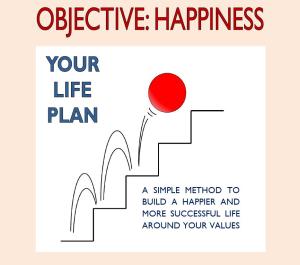When it comes to looking for partnerships as part of a value chain, one area tends to be neglected. Usually, business people will develop their business plan properly, identify their market and their source of supplies, and make sure that the math is solid. Beyond the numbers, there is always the human factor that will play a role. Every company, therefore every partner in the chain has its own specific culture. This is important to realize, because when cultures, and values, do not match, the relationship will always bring some hardships at some point. This is not a simple problem to solve, and usually, only few potential partners share your values. It is also important to realize that the word “values” does not necessarily imply good ethics and honesty. After all, hyenas move in packs. Sometimes, the partner that can help grow your business the fastest might not be the right one for the long-term, but it might be the best choice for now. Depending on in which region of the world you do business, the sense of time, sometimes even of urgency, can vary a lot. For instance, North Americans tend to want to start business immediately, while the Japanese will take all the time they need to find out whom they do business with, and build enough of confidence in their potential partner before starting business. In the land of the rising sun, it can take several years before the first transaction takes place.  What are the risks of a mismatch of values? It can have serious consequences, depending on how much of your business is engaged with the “wrong” partner. It can range from dissatisfaction about the profitability of your business, constant disagreements and tensions with your business partner, to your being ripped off. One thing is sure: there will never be complete trust and loyalty when values are not aligned. Several years ago, I developed a quantitative system to evaluate the value of a business partnership. It is rather simple in its design and very powerful in its implementation. It helps identify the strengths and the weakness of the business relationship, and it is an amazing to tool to use to address potentially damaging issues over time, and create clarity for future dealings. By realigning values, both business partners can develop a plan of action and look beyond the price negotiations alone.
What are the risks of a mismatch of values? It can have serious consequences, depending on how much of your business is engaged with the “wrong” partner. It can range from dissatisfaction about the profitability of your business, constant disagreements and tensions with your business partner, to your being ripped off. One thing is sure: there will never be complete trust and loyalty when values are not aligned. Several years ago, I developed a quantitative system to evaluate the value of a business partnership. It is rather simple in its design and very powerful in its implementation. It helps identify the strengths and the weakness of the business relationship, and it is an amazing to tool to use to address potentially damaging issues over time, and create clarity for future dealings. By realigning values, both business partners can develop a plan of action and look beyond the price negotiations alone.
The importance of values in value chains
October 1, 2010The Happy Customer
July 18, 2009 Customers are essential for a business. Therefore, keeping the customer satisfied and happy is critical for you as a supplier. So, what does make a happy customer? Is it just about saying “yes” to all their requests? Although many salespeople seem to think that saying “yes” is the answer, the reality is quite different. Customers understand and accept “no” for an answer when they realize that they can have a better deal than “yes”.
Customers are essential for a business. Therefore, keeping the customer satisfied and happy is critical for you as a supplier. So, what does make a happy customer? Is it just about saying “yes” to all their requests? Although many salespeople seem to think that saying “yes” is the answer, the reality is quite different. Customers understand and accept “no” for an answer when they realize that they can have a better deal than “yes”.
Quite often, I have heard statements such as “we exceed our customers’ expectations” or “customer first” and I have seen that they are rather ineffective, and in some cases counterproductive, because they neither create true loyalty nor establish a respectful relationship. To me, such statements are just hollow marketing slogans that rarely serve the customer or the supplier’s business for that matter.
To make a happy customer, it does not take all that much, but there is a combination of areas that need to be covered properly.
Before even claiming that you will exceed the customer’s expectations, you need to identify and understand what the customer really wants and needs and why. To achieve this, there is this simple, yet highly effective technique that, unfortunately, many salespeople seem to ignore: LISTEN!
To me, listening is the easiest thing in the world: all you have to do is keep quiet and let the customer speak. Just moderate the conversation by asking a few relevant questions, and take notes! Another important part of listening is that it shows that you respect your customer’s knowledge of his business and of yours to some extent. Too many salespeople fail a sale because they annoy the buyer by pretending that they know everything better.
Another area that is critical to make the customer happy is to never any promise that you cannot keep. Saying yes and not delivering is probably the most effective way of destroying trust and credibility. Since they are already difficult to establish the first time, trying to gain them back is an even harder task. If in doubt, you do not have to say “no”, but tell the customer that you will do your due diligence and get back to him as soon as possible. Since this is a promise, do not forget to indeed do the thorough follow-up, unless you wish to lose your credibility. If you cannot promise this, then you must ask yourself if you really should be a businessperson at all.
If you want to establish a long-term relationship, which is what everybody claims, you also must make sure that your service or product is actually adding value to your customer. By asking and listening, you will find out where the customer has a need for added value, and you must demonstrate clearly to him/her that you indeed can help him/her build a stronger business.
Also, never forget that solid relationships can last only if there is mutual respect. You must show this to your customer, and always negotiate in a give and take approach. The best way to earn respect is to be honest and tell the truth. Saying “yes” only works for a while until the day you disappoint the customer. In my sales career, the best compliment I have had came from Marks & Spencer. My contact there told me that what they liked about our company was that, unlike many of their other suppliers, we dared to say “no”, explain why and come with a workable solution. It sounds so simple, doesn’t it?
Last, but not least, always remember that the customer is the one who pays for your salary, so serve him well and in a way that also supports your business. You also must not forget that to have your salary paid, your business must be profitable, so do not forget to make the customer pay a fair price to you for all the great service you deliver him as listed above!
Copyright 2009 The Happy Future Group Consulting Ltd.



 Posted by Christophe Pelletier
Posted by Christophe Pelletier 








